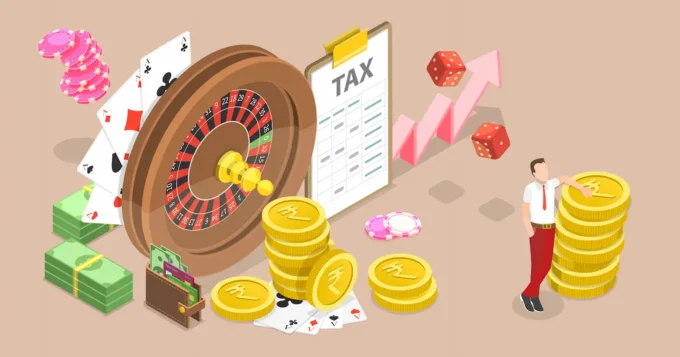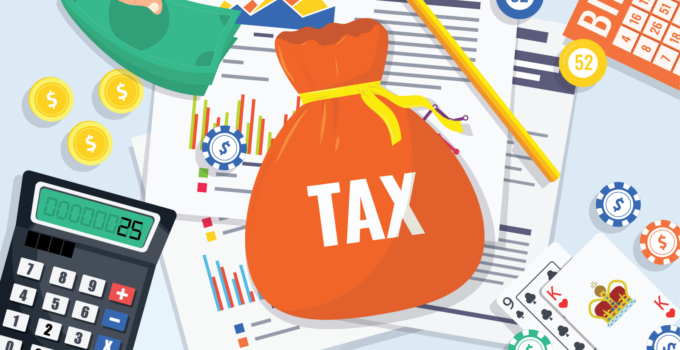The world of online gambling is not just a realm of entertainment and chance; it also intersects intriguingly with the domain of taxation. Many players are unaware of the potential tax implications and benefits associated with their online casino activities. This blog post delves into the often-overlooked aspect of tax deductions and credits for online casino players, providing valuable insights and guidance.
Understanding Tax Obligations for Online Winnings
Reporting Online Casino Winnings

Source: life.futuregenerali.in
Winnings are generally considered taxable income. Players must report their winnings on their tax returns, similar to earnings from other sources. It’s crucial to maintain accurate records of your wins and losses, as this information will be vital when filing taxes. In some countries, casinos also report large winnings to tax authorities, so players should always be prepared for this.
Tax Rates and Thresholds
The tax rate on winnings varies depending on the country and, sometimes, the state or province. Some jurisdictions have a flat tax rate, while others might have a progressive system based on the amount won. Additionally, there may be thresholds below which winnings are not taxed. Understanding these nuances is key to managing your potential tax liabilities effectively.
Possible Tax Deductions for Online Gamblers
While the idea of deducting gambling losses or expenses might seem far-fetched, there are scenarios where players can do just that. This section discusses the conditions under which such deductions are possible.
Deducting Gambling Losses
In some jurisdictions, players can deduct their gambling losses on their tax returns, but there are limitations. Typically, you can only deduct losses up to the amount of your gambling winnings. This means if you won $5,000 but lost $7,000 in a year, you can only deduct $5,000. It’s essential to keep detailed records of both winnings and losses to substantiate your claims.
Expenses Related to Online Gambling
Professional gamblers, those who gamble as a primary source of income, might be able to deduct more than just their losses. They may also be able to deduct certain gambling-related expenses, such as travel to tournaments, specialized software, or home office expenses. An example of this could be a professional online poker player who uses the platform Crazyvegas for their gaming; such players might be able to include the subscription costs as a deductible expense. However, the criteria for being classified as a professional gambler are strict and vary by jurisdiction.
Tax Credits Specific to Gambling

Source: kiplinger.com
Tax credits directly reduce the amount of tax you owe, and in some cases, there might be credits available to players. This section explores such possibilities.
Educational Credits and Programs
While not directly related to gambling, some players might be eligible for educational tax credits if they pursue courses or training related to their gambling activities. For instance, professional players enhancing their skills through formal education might qualify for such credits.
Tax Credits for Losses in Certain Jurisdictions
A few places offer tax credits for gambling losses, allowing players to offset a portion of their losses against their tax liabilities. These are rare but can significantly benefit players in those jurisdictions. As with deductions, maintaining accurate records is crucial to take advantage of these credits.
Strategies for Record-Keeping and Documentation
Effective record-keeping is crucial for players, especially when it comes to tax time. This section offers practical tips and strategies for maintaining accurate and organized records of your gambling activities.
Importance of Detailed Records
Maintaining detailed records of your wins and losses is not just a recommendation; it’s a necessity for tax purposes. Records should include dates, types of games played, amounts won or lost, and the online platform used. This documentation will be invaluable if you’re audited or questioned by tax authorities. Moreover, it helps you understand your gambling habits better, allowing for more informed and responsible gaming.
Tools and Methods for Tracking Gambling Activity
In today’s digital age, several tools and methods can simplify the process of tracking gambling activity. From mobile apps designed to track wins and losses to simple spreadsheet programs, the key is to find a system that works for you and stick to it. Regularly updating your records and backing them up is also vital to ensure their accuracy and safety.
Navigating State and Local Tax Laws

Source: governing.com
The tax implications of online gambling can vary significantly based on your location. This section will highlight the importance of understanding and complying with state and local tax laws regarding online casino winnings.
Variations in State and Local Tax Laws
In countries like the United States, tax laws can vary widely from one state to another. Some states may have higher tax rates on gambling winnings, while others may offer more generous deductions for losses. It’s important to familiarize yourself with the specific laws in your state or locality to avoid any unpleasant surprises come tax time.
Seeking Professional Tax Advice
Given the complexity of state and local tax laws, consulting with a tax professional who understands the nuances of gambling taxation can be a wise investment. They can provide personalized advice based on your specific circumstances and help you navigate the maze of regulations to minimize your tax liabilities legally.
Future Trends in Online Gambling Taxation

Source: money-gate.com
The landscape of online gambling is ever-evolving, and with it, the tax policies related to it. This section explores potential future trends and changes in the taxation of winnings.
Predicting Changes in Tax Policies
As online gambling continues to grow in popularity, governments may revise their tax policies to better regulate and profit from this booming industry. This could include new forms of taxation, changes in reporting requirements, or adjustments to tax rates. Staying informed about these changes is crucial for players who want to remain compliant and optimize their tax situations.
Conclusion
Navigating the tax implications of online casino play can be complex, but it’s an essential part of responsible gambling. By understanding the potential tax deductions and credits available, players can make more informed decisions and potentially reduce their tax liabilities. Remember, the key is to keep detailed records and seek professional advice if needed. With the right approach, players can enjoy their online casino experience while staying on the right side of tax laws.







